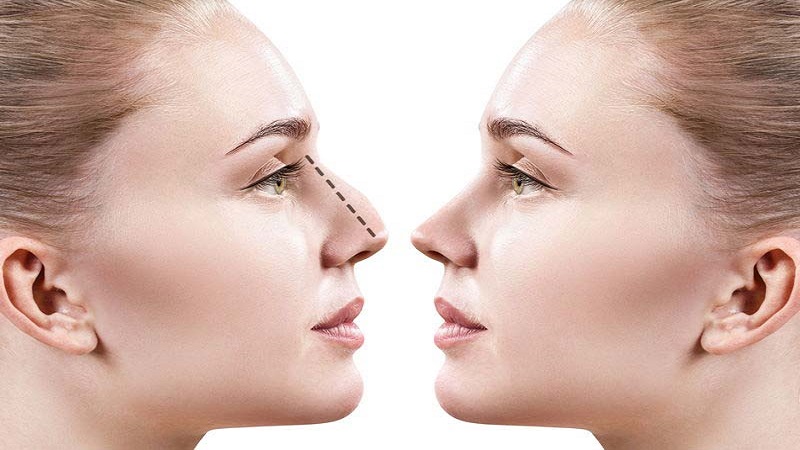Comprehensive Article on Laser Nose Surgery

Comprehensive Article on Laser Nose Surgery
Introduction
Laser nose surgery is one of the latest and non-invasive methods in the field of cosmetic surgery to reshape the nose. In this method, laser technology is used to make changes to the nose's appearance, unlike traditional rhinoplasty, which requires incisions and major structural changes to the bones and cartilage. This method is primarily used for improving the surface and non-structural aspects of the nose, and due to its minimally invasive nature and shorter recovery time, it has become more popular among individuals seeking subtle changes. This article provides a thorough examination of laser nose surgery, its advantages and disadvantages, techniques, post-operative care, and expectations.
Concept and Structure of Laser Nose Surgery
Laser, as an advanced and precise tool, is widely used in various medical and surgical fields. In laser nose surgery, instead of using a scalpel to create large incisions, concentrated laser beams are used to remove or reshape surface layers of the skin and, in some cases, to tighten or reduce subcutaneous fat. Laser is typically used for superficial corrections and improving the skin's appearance, and less commonly for significant structural changes like reshaping cartilage or bones.
Since laser nose surgery usually does not involve significant structural changes, it is mostly used for correcting surface issues such as removing small humps, improving skin texture, reducing pore size, and skin blemishes. The laser can precisely remove thin layers of skin without damaging surrounding tissues, making it a minimally invasive procedure with fewer risks compared to traditional surgical methods.
Reasons for Choosing Laser Nose Surgery
People may choose laser nose surgery for various reasons, including:
- Superficial and Non-Invasive Corrections
One of the main reasons for choosing laser nose surgery is its ability to make superficial and non-invasive changes. Many people want to improve the outer appearance of their nose without needing major invasive changes to the nasal structure. This procedure is useful for addressing minor issues such as slight surface irregularities, small humps, or uneven skin texture. - Shorter Recovery Time
Compared to traditional rhinoplasty, which typically requires a long recovery period, laser nose surgery offers a much shorter recovery time. Due to its minimally invasive nature, swelling and bruising are less severe, allowing patients to return to their daily activities much more quickly. This is especially appealing to individuals who do not want to endure a lengthy recovery process. - Minimal Complications and Risks
Since laser surgery does not require deep incisions, the risks associated with bleeding, infection, and deep injuries are significantly reduced. This makes laser nose surgery a safer and lower-risk option for those looking to improve the appearance of their nose without major risks. - Improvement of Nasal Skin Issues
Laser is widely used to improve skin problems such as acne, skin blemishes, fine wrinkles, and even pore size. Those with skin issues on their nose can benefit from this method as laser stimulates collagen production, helping to improve skin texture and appearance.
Laser Nose Surgery Methods
Laser nose surgery can be performed using various techniques depending on the patient's specific needs and goals. The most common methods include:
- CO2 Laser
CO2 laser is one of the most common types of lasers used in nose cosmetic procedures. This type of laser can precisely remove thin layers of skin, making it ideal for improving skin texture and reducing small humps on the nose. CO2 laser is generally suitable for people seeking mild and surface-level changes to their nose.
This laser is especially useful for removing uneven surface tissue, reducing fine wrinkles, and improving skin elasticity. By precisely removing skin layers, it can stimulate collagen production, improving the overall appearance of the skin. - Erbium Laser
Erbium laser is another type of laser used in nose procedures. It is mainly used to reduce wrinkles and improve skin texture and is less invasive, causing less damage to surrounding tissues. This laser is ideal for those seeking mild changes and a shorter recovery time. - Radiofrequency (RF) Laser
Radiofrequency (RF) laser is another non-invasive method for reshaping the nose. This method uses radiofrequency waves to tighten the skin and reduce fat volume. It is particularly suitable for individuals with a fleshy nose who are looking to reduce the size of their nose.
Advantages and Disadvantages of Laser Nose Surgery
Laser nose surgery comes with specific advantages and disadvantages that should be considered before making a decision. Here's a look at them:
Advantages:
- Minimally Invasive: One of the main benefits is that laser nose surgery is minimally invasive, requiring no deep cuts. The laser is used to alter only the surface layers.
- Shorter Recovery Time: Compared to traditional surgery, laser surgery offers a quicker recovery, and patients can resume daily activities more quickly.
- Fewer Complications: The risk of infection, bleeding, and deep tissue damage is significantly lower due to the non-invasive nature of the procedure.
- Improved Skin Quality: Laser can enhance the skin’s texture and appearance, addressing issues such as wrinkles, acne, and large pores.
Disadvantages:
- Limited Structural Changes: One of the major drawbacks is that laser surgery is not suitable for significant structural changes, such as altering the shape of the cartilage or bones.
- Multiple Sessions Required: In some cases, patients may need multiple laser sessions to achieve the desired results, which can increase both time and cost.
- Limited Results: The results are typically less dramatic compared to traditional surgery, and patients seeking significant changes may not be fully satisfied.
Post-Operative Care for Laser Nose Surgery
Post-operative care is essential to ensure a smooth recovery and optimal results. Key care tips include:
- Use of Restorative and Moisturizing Creams: After laser surgery, the skin may become dry and sensitive, so using restorative and moisturizing creams can help speed up the healing process.
- Avoid Sun Exposure: After the laser procedure, the skin is more sensitive, so avoiding direct sunlight is crucial. Use sunscreen with a high SPF to protect the skin.
- Avoid Using Makeup: It is best to avoid applying makeup to the nose until the skin has fully healed, as it may cause irritation.
- Follow-Up Treatments: If multiple sessions are needed, regular follow-ups with the doctor are important to ensure the best results.
Results and Expectations
The results of laser nose surgery are usually noticeable immediately, but due to swelling and redness, it may take a few days for the final outcome to fully appear. Patients should have realistic expectations and understand that this procedure is suitable for minor, surface-level changes, not major structural alterations.
Conclusion
Laser nose surgery is a new and minimally invasive method to improve the appearance of the nose and skin. It is an excellent option for individuals looking for mild, non-invasive changes, but for those requiring major structural alterations, traditional rhinoplasty may be a better option. Choosing a skilled surgeon and following post-operative care instructions can help achieve satisfactory results and a faster recovery.



comment